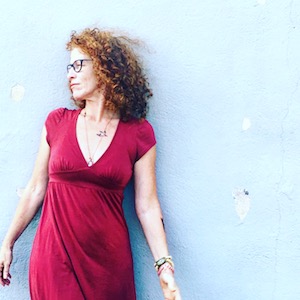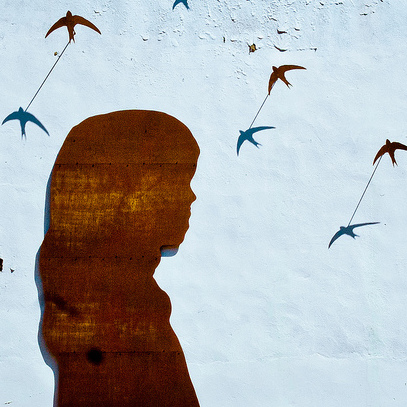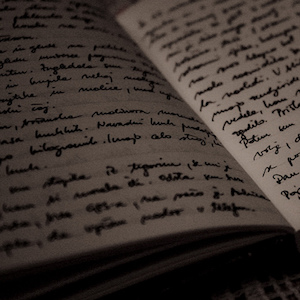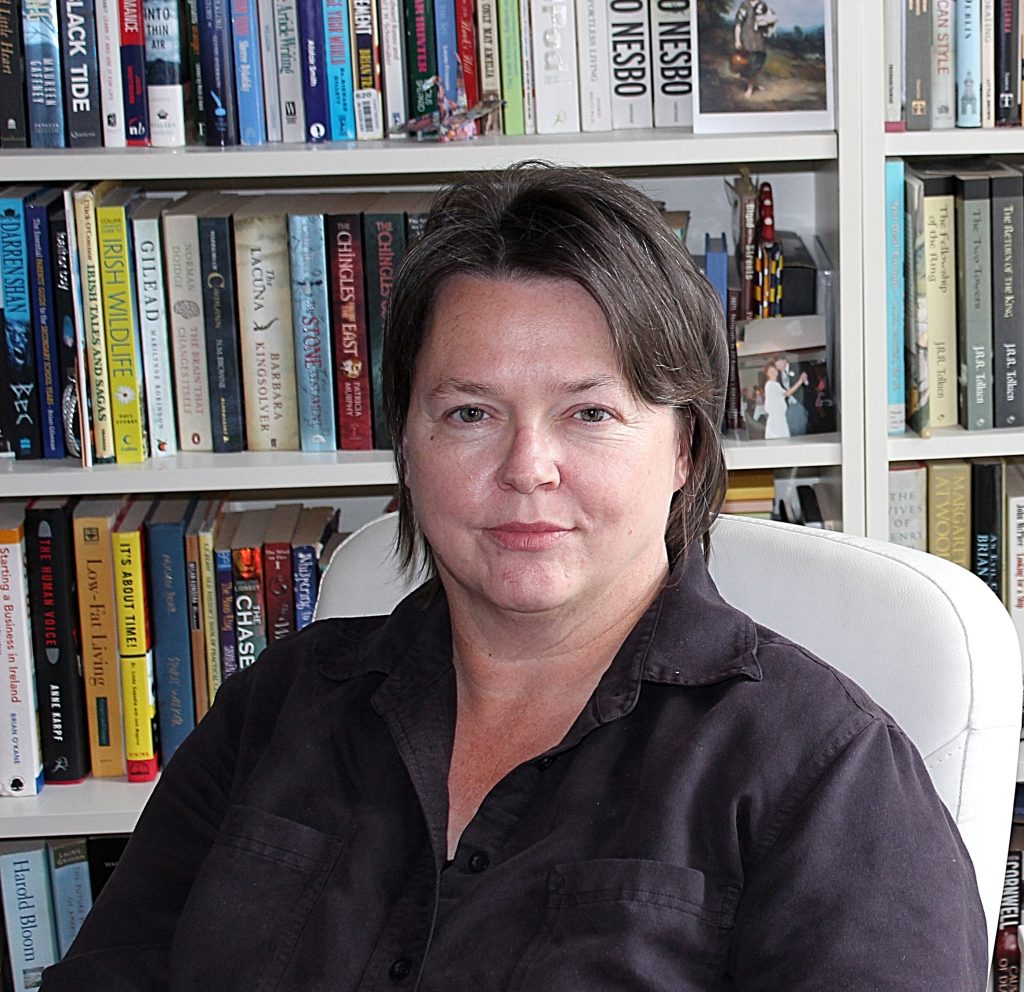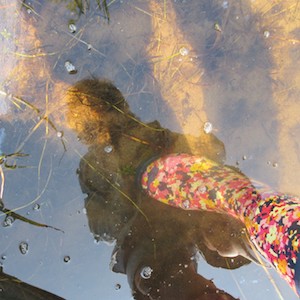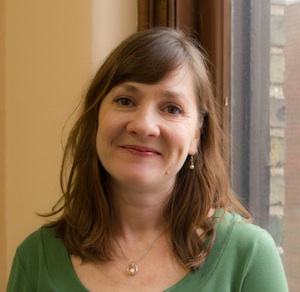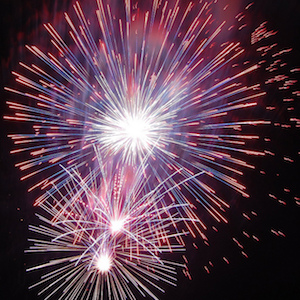The Story Behind “Across Which the World” by Laura McCullough
Today’s post is written by Laura McCullough. We published her poem “Across Which the World” in our Fall 2016 issue.
It’s hard to discuss my own work. I think if I could say what I needed to say in another form, I would. A poem is what I write because I can’t say something any other way. It is about making sense for me, though what I really desire is to make something beautiful some day. I’m ashamed to admit that because I’m not sure that’s a worthwhile ambition. It seems too willful, vainglorious, but I do wish to craft one poem, maybe, before I am through that I can believe has something both true and beautiful in it. I don’t think “Across Which the World” does, though I am pleased at the syntactical rhythms of the first stanza, and the tonal juxtaposition between the romantic lyricism of the first stanza and the gesture toward science and reason in the couplet following it.
Which is to say the poem fails because even my way of starting this discussion reveals a willfulness. When I say “willfulness,” I do not mean craft. I mean a self-conscious over-control above craft, that perhaps works against craft. Craft should be, as Kunitz gently told us, transparent, and his desire to see the world though that transparency is what really matters. Willfulness, in the way I am speaking, occludes. It’s a little fog on the window, or the gasses in a double-paned have seeped out, and murkiness remains in the broken vacuum. All of which is to say my subject is not readily apparent, and that’s because I couldn’t and still can not make sense of it.
A friend had sent a box of honeys from different locales.
A friend who knew I was suffering.
So I tasted the honeys every day while I was writing the book this poem is a part of (The Wild Night Dress, University of Arkansas Press). There are several poems in which honey or bees show up. This poem, and a few others, also “sample” from earlier poems of mine, particularly relating to love and especially regarding my children, and to an essay I wrote that appeared in Georgia Review about the poet Stephen Dunn, teaching, and death, and the choosing to live that we all have to do, over and over.
My mother had just died rather suddenly. My marriage had collapsed.
A box of honeys arrived in the mail.
I still don’t know how to make sense of death nor of love.
I could taste the honeys. I could consider the places they came from, the fields, the bees, the cultures. I could think about my own thinking, about cognitive science, brain plasticity, memory. Bees actually transmute the “places” they have been, bits of the flowers they have touched into something astonishing and shared. Maybe that’s a little like making poems for me. This particular poem then is a little ars poetica against grief because grief can drown you. Certainty in the grip, it feels as if it will. But if you emerge on the other side, is there something like honey then? I think that’s my implicit thesis here. Is that true though?
This poem breaks my heart open again. What I didn’t write in it was the day my mother and I sat together, and she told me she didn’t want to medicalize her last days, that she didn’t want to put us all through the horrors of attempting to prolong her life, that she knew she’d be dead in four months (it was in fact thirteen weeks), and we fell into each others arms and stared into each others’ eyes in a raw open way unlike any eye contact I have had before or since, and just said “I love you; I love you; I love you; I love you,” over and over and over and over and over. Until she said, “Enough now. This love is too extravagant.” And after that, we began the business of her dying.
And I don’t know how to write about that moment about the depths of love and also courage and determination and choice. Because I don’t know how to transmute those things through my body into something true and beautiful.
I could only think about being a drone—both in terms of surveilling my own life and in terms of being one of many in the swarm of humanity trying to understand what this living is—who has gone into a field and come back to the community sticky with residue. See? See how easy it is to get trapped in metaphor? Not say what the reality is, because it’s too hard. Hard to bear, transform, transmit.
Easier to speak of beekeepers in Turkey as if they were exotic, when the truly exotic is inside of us, waiting to be transmuted. A luxury then to be given honey by friend to sustain me while preparing to do that hard work, that life’s work, of taking grief and all else the living offers and be changed from myself into myself. A process that apparently can not be done alone.
Here’s a funny little truth. I’ve gone through almost all that honey over the time it took to write that book. There’s maybe a crystallized tablespoon left in the last jar, and it’s been sitting on my counter a long time now. Sometimes I turn I upside down thinking maybe the honey will fall to the bottom, but it’s pretty solid, and it won’t come out unless I pour in some hot water or melt it some way. The jar keeps getting knocked over. The label is nearly worn off. I’m not kidding. It occurs to me now that I just don’t want to be done with it. The kindness it represents. The knowingness of the part of the friend who sent it. “Across Which the World” is an empathy for which I am grateful.
About the Author
Laura McCullough is a poet and memoirist. Her books include The Wild Night Dress, selected by Billy Collins in the Miller Williams Poetry Contest, University of Arkansas Press, Jersey Mercy (Black Lawrence Press), Rigger Death & Hoist Another (BLP), Panic (winner of the Kinereth Gensler Award, Alice James Books), Speech Acts (BLP), and What Men Want (XOXOX Press). She has edited two anthologies, A Sense of Regard: essays on poetry and race (Georgia University Press, 2015) and The Room and the World: essays on Stephen Dunn (University of Syracuse Press, 2014). Her poems and prose have appeared in Best American Poetry, Georgia Review, American Poetry Review, Painted Bride Quarterly, The Writer’s Chronicle, Guernica, Cimarron Review, The Southern Review, Gulf Coast, Pank, Hotel America, Prairie Schooner, and many other journals and magazines. She has been awarded scholarships or fellowships to the Bread Loaf Writers Conference, the Nebraska Summer Writers Conference, Sewanee Writers Conference, the Vermont Studio Center, the Virginia Center for the Arts, the Betsy House, Marble House, and has been a Dodge Poetry Festival poet, a Florida Writers Circuit poet, and a Decatur Book Festival poet. She held two NJ State Arts Council Fellowships, one in poetry and one in prose. She teaches full time at Brookdale Community College, has taught at Stockton University and Ramapo College, and is on the faculty of the Sierra Nevada low-res MFA where she teaches poetry and critical theory. Visit her at http://www.lauramccullough.org.

